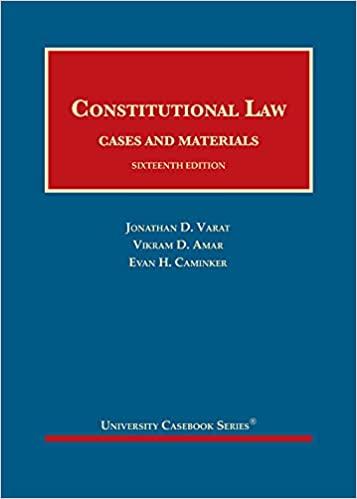Question
Bob Smith, Jr. (Junior) is a 24-year-old, 3-pack-a-day smoker. Bob Smith, Sr. (Senior) is a very concerned parent. On January 1, the father announces to
Bob Smith, Jr. ("Junior") is a 24-year-old, 3-pack-a-day smoker. Bob Smith, Sr. ("Senior") is a very concerned parent. On January 1, the father announces to the son, "Junior, if you will stop smoking for the entire year, I will pay you $5,000." Senior believes that, if Junior will stop smoking for one year, he will "kick the habit." Junior reluctantly accepts his father's terms.
On January 1 of the following year, Junior approaches Senior and says, "Dad, time to pay up." Senior has no reason to doubt that Junior has refrained from smoking for an entire year, but states, "Son, this offer was for your benefit. The gift I have given you is the gift of life, and you are now likely to enjoy that gift longer because you are now much less likely to contract cancer. Health statistics show that non-smokers live ten years longer than smokers. Enjoy your newfound life, but I will not pay you the $5,000."
Does Senior owe Junior the $5,000? Is there an enforceable contract between father and son? If there is not an enforceable contract, does Junior have any other legal or equitable theory of recovery? Is Senior ethically obligated to pay Junior the $5,000? Explain your answer.
Step by Step Solution
There are 3 Steps involved in it
Step: 1

Get Instant Access to Expert-Tailored Solutions
See step-by-step solutions with expert insights and AI powered tools for academic success
Step: 2

Step: 3

Ace Your Homework with AI
Get the answers you need in no time with our AI-driven, step-by-step assistance
Get Started


